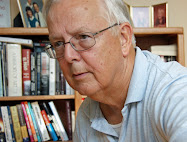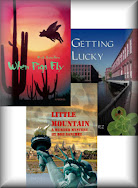 Over a half century ago, I waltzed into the ninth grade without realizing that teachers actually expected me to work. Miss Murphy, our English teacher, assigned us to read Jane Eyre, and dear God, I didn’t want to. What language was it even in? Miss Brontë never wrote anything in simple English, it seemed to me; why use only one word when she could use ten? And she never left a room in Thornfield. She issued from it. That and perhaps the fact that the story was about a girl convinced me not to do my scholastic duty.
Over a half century ago, I waltzed into the ninth grade without realizing that teachers actually expected me to work. Miss Murphy, our English teacher, assigned us to read Jane Eyre, and dear God, I didn’t want to. What language was it even in? Miss Brontë never wrote anything in simple English, it seemed to me; why use only one word when she could use ten? And she never left a room in Thornfield. She issued from it. That and perhaps the fact that the story was about a girl convinced me not to do my scholastic duty.Saturday, December 27, 2008
Finishing old homework
 Over a half century ago, I waltzed into the ninth grade without realizing that teachers actually expected me to work. Miss Murphy, our English teacher, assigned us to read Jane Eyre, and dear God, I didn’t want to. What language was it even in? Miss Brontë never wrote anything in simple English, it seemed to me; why use only one word when she could use ten? And she never left a room in Thornfield. She issued from it. That and perhaps the fact that the story was about a girl convinced me not to do my scholastic duty.
Over a half century ago, I waltzed into the ninth grade without realizing that teachers actually expected me to work. Miss Murphy, our English teacher, assigned us to read Jane Eyre, and dear God, I didn’t want to. What language was it even in? Miss Brontë never wrote anything in simple English, it seemed to me; why use only one word when she could use ten? And she never left a room in Thornfield. She issued from it. That and perhaps the fact that the story was about a girl convinced me not to do my scholastic duty.Sunday, December 21, 2008
Review of Three Generations, No Imbeciles
Saturday, December 13, 2008
Welcome to America
Welcome to
In
My mother’s grandfather
Left bayonets and cannon behind
To raise chickens, cotton, Kinder
But spoke the Prussian tongue
Until he died.
Mesilla, where I meet
My writing friends,
Belonged to
Back in the day
Of European potentates
Ruling south of our border
Then with a stroke of ink and
A sack of gold
The people stayed and
The border moved—
Welcome to
The poet Frost wrote of walls
Unloved but neighborly
Saying “respect my land”
Walls not so high you cannot cross them
Though he’d much prefer
You knocked on his door and
Asked permission to come in.
YOU CAN’T BE TOO CAREFUL
This short piece won first prize in the humorous fiction category in the 2008 El Paso Writer’s League writing contest.
YOU CAN’T BE TOO CAREFUL
By Bob Sanchez
George knew the world was coming apart at the seams. Only by furious effort had the world avoided the Y2K debacle, with its attendant threat of planetary lockjaw. Citizens would have been shot dead for their bottled water, their gasoline, their triple-A batteries and their clean underwear.
Okay, he thought, we dodged the millennial bullet only to take one in the heart with nine-eleven. We have Columbine shootings, no-fly lists, outsourced jobs and insourced illegals, corporate meltdowns, ozone holes, and Americans up to their asses in IEDs in
Lila grabbed the package out of his hand. “This isn’t going to keep out sarin, anthrax, or radioactive isotopes.”
“Because if you’re sick, you should sleep on the cot tonight.” He took back the duct tape and opened the package. “Maybe I didn’t seal the windows properly.”
“But downwind,” he said quietly.
For the first time, he noticed that she had her winter coat on and that she had packed a suitcase.“I’m leaving you,” she said.
“Right now?”
“Now isn’t soon enough, but yes.”
“But you’re safe here.”
“I don’t care. I’m sick of being safe. I’ll risk sorry.”
Or when she gripped it tightly in her fist.
So he didn’t blink when her arm whipped forward. The hard, black roll followed a short, swift trajectory from her fingertips to his temple. George had always suspected that his life would end in a flash of blinding light.
And so it did.
—end—
Monday, December 08, 2008
Getting Lucky
Thursday, December 04, 2008
Poems for a philistine
—Ozymandias of Egypt by Percy Bysshe Shelley
—Dover Beach by Matthew Arnold
—On a Favourite Cat, Drowned in a Tub of Gold Fishes by Thomas Gray is a bit literary, but has a clever punch line you’re sure to recognize.
















